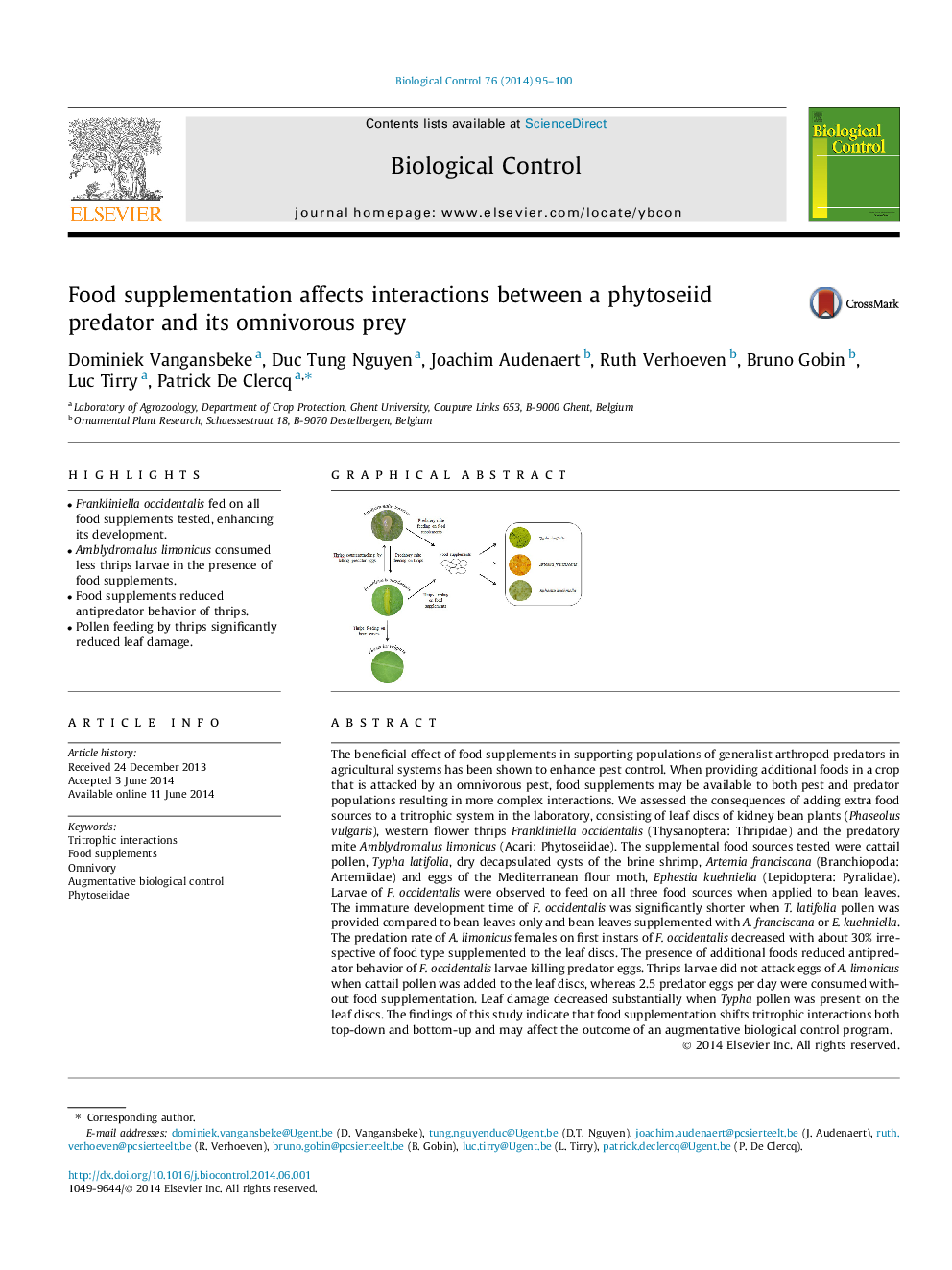| کد مقاله | کد نشریه | سال انتشار | مقاله انگلیسی | نسخه تمام متن |
|---|---|---|---|---|
| 4503889 | 1624258 | 2014 | 6 صفحه PDF | دانلود رایگان |
• Frankliniella occidentalis fed on all food supplements tested, enhancing its development.
• Amblydromalus limonicus consumed less thrips larvae in the presence of food supplements.
• Food supplements reduced antipredator behavior of thrips.
• Pollen feeding by thrips significantly reduced leaf damage.
The beneficial effect of food supplements in supporting populations of generalist arthropod predators in agricultural systems has been shown to enhance pest control. When providing additional foods in a crop that is attacked by an omnivorous pest, food supplements may be available to both pest and predator populations resulting in more complex interactions. We assessed the consequences of adding extra food sources to a tritrophic system in the laboratory, consisting of leaf discs of kidney bean plants (Phaseolus vulgaris), western flower thrips Frankliniella occidentalis (Thysanoptera: Thripidae) and the predatory mite Amblydromalus limonicus (Acari: Phytoseiidae). The supplemental food sources tested were cattail pollen, Typha latifolia, dry decapsulated cysts of the brine shrimp, Artemia franciscana (Branchiopoda: Artemiidae) and eggs of the Mediterranean flour moth, Ephestia kuehniella (Lepidoptera: Pyralidae). Larvae of F. occidentalis were observed to feed on all three food sources when applied to bean leaves. The immature development time of F. occidentalis was significantly shorter when T. latifolia pollen was provided compared to bean leaves only and bean leaves supplemented with A. franciscana or E. kuehniella. The predation rate of A. limonicus females on first instars of F. occidentalis decreased with about 30% irrespective of food type supplemented to the leaf discs. The presence of additional foods reduced antipredator behavior of F. occidentalis larvae killing predator eggs. Thrips larvae did not attack eggs of A. limonicus when cattail pollen was added to the leaf discs, whereas 2.5 predator eggs per day were consumed without food supplementation. Leaf damage decreased substantially when Typha pollen was present on the leaf discs. The findings of this study indicate that food supplementation shifts tritrophic interactions both top-down and bottom-up and may affect the outcome of an augmentative biological control program.
Figure optionsDownload as PowerPoint slide
Journal: Biological Control - Volume 76, September 2014, Pages 95–100
